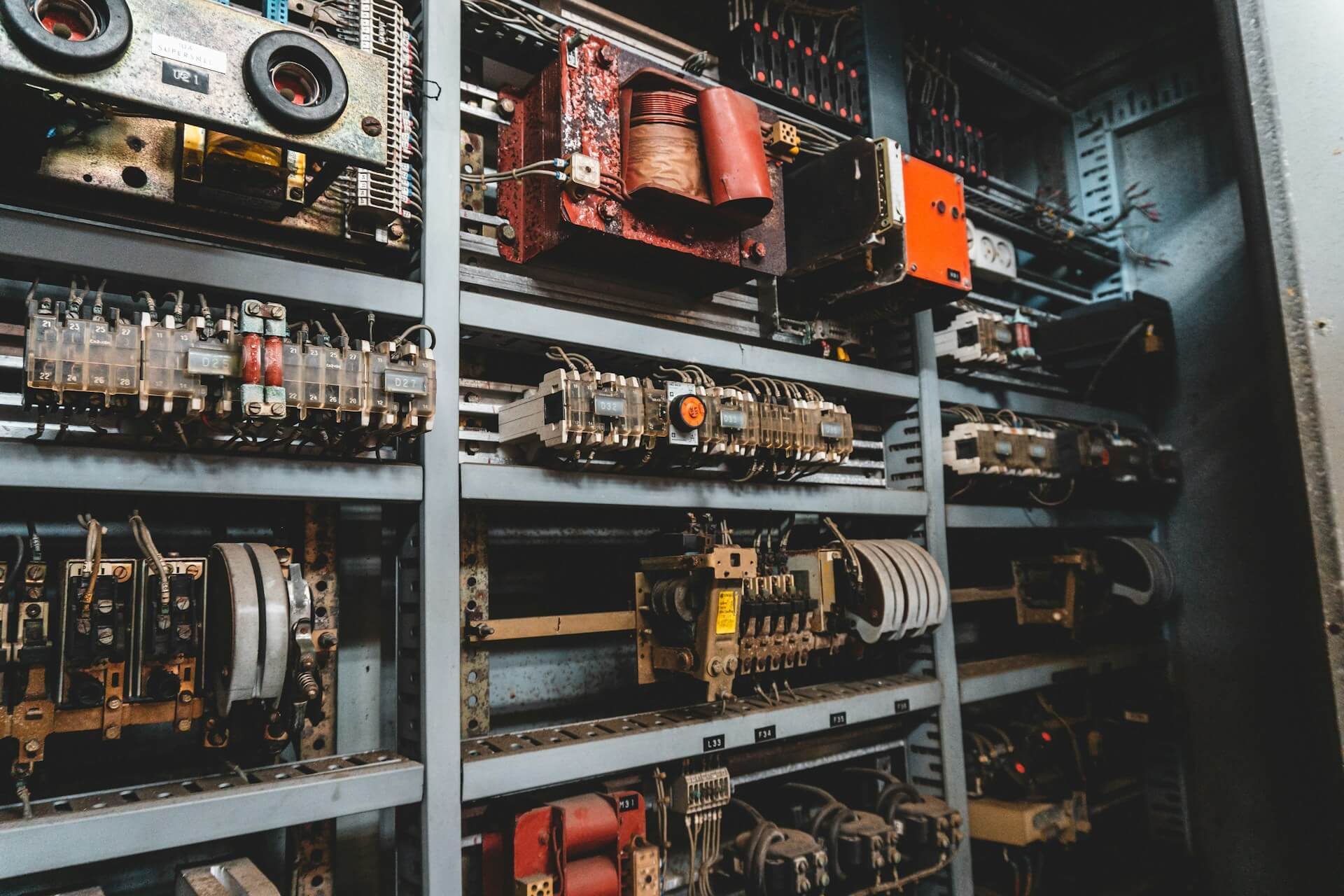When it comes to keeping our homes comfortable all year round, the unsung heroes are HVAC systems. They work tirelessly in the background, ensuring that the air we breathe is clean, the temperature is just right, and our living spaces are cozy in the winter and cool in the summer. Understanding the intricacies of HVAC systems can seem like a daunting task, but knowledge is power. For those who want to learn more about the types of HVAC systems available and how they function, there are helpful resources out there. Simply click here, and you can begin your journey to becoming an informed homeowner or business owner who can make informed decisions about indoor climate control.
Whether you’re in the market for a new system, looking to improve energy efficiency, or just aiming to increase your HVAC knowledge, this guide is here to demystify the world of HVAC. We’ll start with the basics, such as how HVAC systems work, and then move on to explore the various types available and how they can best be utilized to create a comfortable and healthy indoor environment.
Understanding the Basics of HVAC
An HVAC system is designed to maintain indoor air quality by providing thermal comfort and maintaining pressure within a space. The system is comprised of various mechanical and electronic components, each playing a crucial role in the overall operation.
How an HVAC System Works
At its core, an HVAC system’s function is to adjust the temperature of indoor air and provide fresh air from the outdoors. The key components include:
- Thermostat: The control center that responds to temperature changes and signals the HVAC system to turn on and off.
- Furnace: Heats air for distribution around the building.
- Heat Exchanger (on older systems): A critical part of the furnace that separates the combustion process from your breathing air.
- Heat Pump: Provides both heating and cooling by moving heat from one environment to another through a refrigeration cycle.
- Air Conditioner: Cools air by passing it through a set of cold pipes known as the evaporator coil.
- Vents and Ducts: Distribute air throughout the building.
- Refrigerant Lines: Connect the outdoor unit to the indoor evaporator/heat exchanger.
- Air Returns: Bring air back to the HVAC system to be heated, cooled, and recirculated.
The combination and operation of these components depend on the system type and the space being served.
The Importance of Regular Maintenance
To ensure peak performance, an HVAC system requires regular maintenance. This includes changing filters, cleaning ducts, and scheduling professional inspections. Regular maintenance not only prolongs the life of your system but also maintains healthy air quality and can improve energy efficiency.
Types of HVAC Systems
HVAC systems can be classified into several types based on their design, application, and method of operation. Each type brings unique advantages and is suited to different environments.
Central HVAC Systems
A central HVAC system is an all-in-one heating and cooling upgrade for larger homes or commercial buildings. It can include a standard gas furnace, electric heating, or a heat pump. These systems are known for their even, quiet, and consistent temperature control, but they require more initial setup and investment than other types.
Ductless Mini-Split Systems
Ductless mini-split systems are gaining popularity due to their efficiency and flexibility. They consist of a compressor or condenser unit that sits outdoors and one or more indoor units. These indoor units can be wall-mounted, ceiling-recessed, or floor-standing. They operate quietly, are easy to install, and allow for zoned climate control.
Packaged HVAC Systems
Packaged systems contain all the components of a conventional HVAC system, such as the compressor, condenser, and evaporator coils, in one unit and often sit on the roof or next to the building. They’re frequently used in commercial applications where space is at a premium.
Hybrid HVAC Systems
Hybrid systems combine the power of a gas furnace with an electric heat pump, automatically selecting the most efficient source of heating or cooling depending on external conditions. They’re a cost-effective solution for areas with milder climates.
Geothermal and Solar HVAC Systems
Geothermal and solar HVAC systems are eco-friendly alternatives that harness the Earth’s natural heat or solar energy to heat or cool the air in buildings. They offer long-term cost savings and have a minimal environmental impact but can require high upfront costs.
Window and Portable Units
Smaller, more portable window units or portable air conditioners are ideal solutions for spaces lacking installation options or for temporary use. While they provide spot cooling, they might be less energy-efficient or noisy compared to larger, built-in systems.
Choosing the Right HVAC System for Your Home or Business
Selecting the right HVAC system for your home or business is a complex process that involves evaluating several factors, from the size of your space to the local climate. It’s essential to choose a system that is not only the right size but also efficient and reliable.
Considerations for Homeowners
Homeowners should keep the following considerations in mind:
- The square footage of the home or specific room.
- The climate and the temperature extremes it brings.
- The existing infrastructure, including any existing ductwork.
- The level of noise tolerance for the system, as can be a consideration in open-plan spaces.
- The initial cost should be balanced with long-term energy savings to find the most cost-effective solution.
Tips for Business Owners
For business owners, the stakes can be higher, as a properly operating HVAC system can impact employee productivity and customer experience. Additional considerations include:
- The hours of operation and the need for a system that can operate continuously or can quickly adjust temperature to meet a changing customer flow.
- The specific air quality standards in your industry and region.
- The potential for financing or rebates that can make higher upfront costs feasible.
- The ability to integrate the new HVAC system with existing building management systems.
Enhancing Your HVAC System’s Efficiency
An efficient HVAC system not only saves money on monthly energy bills but also reduces the carbon footprint of your home or business. There are several strategies to achieve this, from upgrading insulation to investing in smart, programmable thermostats.
Upgrading to High-Efficiency Units
Replacing old, energy-hungry units with newer, high-efficiency models can result in significant energy savings. Look for systems with a high Seasonal Energy Efficiency Ratio (SEER) and Energy Efficiency Ratio (EER) for air conditioning units, or a high Annual Fuel Utilization Efficiency (AFUE) for gas furnaces.
Improving Insulation and Sealing Ducts
Proper insulation and sealed ducts help keep the conditioned air where it belongs and prevent energy waste. Investing in insulation and having professional seal ductwork can provide immediate returns in efficiency.
Implementing Smart Thermostats
Smart thermostats learn your habits and adjust the temperature automatically to your preferences, optimizing energy use without sacrificing comfort. They also often include remote operation through mobile devices, allowing you to adjust the temperature from anywhere.
The Role of HVAC in Air Quality
HVAC systems play a critical role in indoor air quality (IAQ), which has a direct impact on health and comfort. Poor IAQ can cause or exacerbate conditions like allergies, asthma, and respiratory infections.
Air Filtration and Purification
High-efficiency particulate air (HEPA) filters and ultraviolet (UV) lamps can be integrated into HVAC systems to remove pollutants, allergens, and microorganisms. Consider the MERV rating of your filter, which indicates its ability to capture particles.
Humidity Control
Maintaining proper levels of humidity is crucial. Too little can cause dry skin and nasal passages, while too much can lead to mold growth. HVAC systems with built-in dehumidifiers and humidifiers offer precise control.
Ventilation
Incorporating fresh air into the circulation is essential. Modern HVAC systems are designed to balance energy efficiency with the need for adequate ventilation. For commercial applications, consider energy recovery ventilation systems that exchange heat between the incoming and outgoing air, conserving energy.
Common HVAC Problems and Solutions
Like any mechanical system, HVAC systems can develop problems. Knowing the signs of common issues can help you address them before they lead to a breakdown.
Inconsistent Temperatures
If some rooms are colder or warmer than others, it could be due to several issues, including blocked vents, incorrect thermostat settings, or ductwork problems. Inspecting and cleaning the vents, ensuring the thermostat is calibrated correctly, and having the ductwork inspected can help solve the problem.
Noisy Operation
Loud or unusual noises coming from the HVAC system may indicate a mechanical issue. Grinding, squealing, or hissing sounds could mean anything from a loose part to a refrigerant leak. Immediate attention from a professional is necessary to diagnose and repair the problem.
Leaks and Moisture
Leaks around the HVAC system can lead to moisture damage and mold growth. Regular inspections for leaks and moisture accumulation, particularly around the condensate line and drain, can prevent costly damage to your property.
Final Thoughts
Understanding the basics of HVAC systems and the options available for homes and businesses is the first step in ensuring a comfortable, efficient, and healthy indoor environment. By considering the size of your space, your climate, your air quality needs, and your energy efficiency goals, you can select a system that meets your specific requirements.
Remember that regular maintenance and prompt attention to any issues will keep your HVAC system running at its best. If you’re in the market for a new system or need assistance with an existing one, don’t hesitate to consult with an HVAC professional. They can provide personalized advice and solutions to address your unique comfort and air quality challenges.
With the knowledge gained from this guide, you are well-equipped to make informed decisions about your HVAC system that will benefit you, your family, or your business for years to come.



Leave a Comment